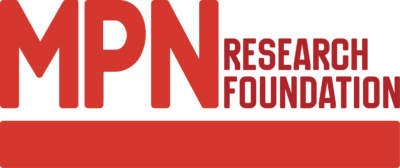Bone Marrow and Kidney Transplant for Patients With Chronic Kidney Disease and Blood Disorders
Study Purpose
The main purpose of this study is to examine the outcome of a combined bone marrow and kidney transplant from a partially matched related (haploidentical or "haplo") donor. This is a pilot study, you are being asked to participate because you have a blood disorder and kidney disease. The aim of the combined transplant is to treat both your underlying blood disorder and kidney disease. We expect to have about 10 people participate in this study. Additionally, because the same person who is donating the kidney will also be donating the bone marrow, there may be a smaller chance of kidney rejection and less need for long-term use of anti-rejection drugs. Traditionally, very strong cancer treatment drugs (chemotherapy) and radiation are used to prepare a subject's body for bone marrow transplant. This is associated with a high risk for serious complications, even in subjects without kidney disease. This therapy can be toxic to the liver, lungs, mucous membranes, and intestines. Additionally, it is believed that standard therapy may be associated with a higher risk of a complication called graft versus host disease (GVHD) where the new donor cells attack the recipient's normal body. Recently, less intense chemotherapy and radiation regimens have been employed (these are called reduced intensity regimens) which cause less injury and GVHD to patients, and thus, have allowed older and less healthy patients to undergo bone marrow transplant. In this study, a reduced intensity regimen of chemotherapy and radiation will be used with the intent of producing fewer toxicities than standard therapy. Typical therapy following a standard kidney transplant includes multiple lifelong medications that aim to prevent the recipient's body from attacking or rejecting the donated kidney. These are called immunosuppressant drugs and they work by "quieting" the recipient's immune system to allow the donated kidney to function properly. One goal in our study is to decrease the duration you will need to be on immunosuppressant drugs following your kidney transplant as the bone marrow transplant will provide you with the donor's immune system which should not attack the donor kidney.
Recruitment Criteria
|
Accepts Healthy Volunteers
Healthy volunteers are participants who do not have a disease or condition, or related conditions or symptoms |
No |
|
Study Type
An interventional clinical study is where participants are assigned to receive one or more interventions (or no intervention) so that researchers can evaluate the effects of the interventions on biomedical or health-related outcomes. An observational clinical study is where participants identified as belonging to study groups are assessed for biomedical or health outcomes. Searching Both is inclusive of interventional and observational studies. |
Interventional |
| Eligible Ages | 18 Years - 70 Years |
| Gender | All |
Trial Details
|
Trial ID:
This trial id was obtained from ClinicalTrials.gov, a service of the U.S. National Institutes of Health, providing information on publicly and privately supported clinical studies of human participants with locations in all 50 States and in 196 countries. |
NCT01758042 |
|
Phase
Phase 1: Studies that emphasize safety and how the drug is metabolized and excreted in humans. Phase 2: Studies that gather preliminary data on effectiveness (whether the drug works in people who have a certain disease or condition) and additional safety data. Phase 3: Studies that gather more information about safety and effectiveness by studying different populations and different dosages and by using the drug in combination with other drugs. Phase 4: Studies occurring after FDA has approved a drug for marketing, efficacy, or optimal use. |
N/A |
|
Lead Sponsor
The sponsor is the organization or person who oversees the clinical study and is responsible for analyzing the study data. |
Massachusetts General Hospital |
|
Principal Investigator
The person who is responsible for the scientific and technical direction of the entire clinical study. |
Yi-Bin A Chen, M.D. |
| Principal Investigator Affiliation | Director of Clinical Research, Massachusetts General Hospital Bone Marrow Transplant Program |
|
Agency Class
Category of organization(s) involved as sponsor (and collaborator) supporting the trial. |
Other |
| Overall Status | Recruiting |
| Countries | United States |
|
Conditions
The disease, disorder, syndrome, illness, or injury that is being studied. |
Chronic Kidney Disease, Acute Myeloid Leukemia (AML), Acute Lymphoblastic Leukemia (ALL), Chronic Myelogenous Leukemia (CML), Chronic Lymphocytic Leukemia (CLL), Non-Hodgkin's Lymphoma (NHL), Hodgkin Disease, Multiple Myeloma, Myelodysplastic Syndrome (MDS), Aplastic Anemia, AL Amyloidosis, Diamond Blackfan Anemia, Myelofibrosis, Myeloproliferative Disease, Sickle Cell Anemia, Autoimmune Diseases, Thalassemia |
Contact a Trial Team
If you are interested in learning more about this trial, find the trial site nearest to your location and contact the site coordinator via email or phone. We also strongly recommend that you consult with your healthcare provider about the trials that may interest you and refer to our terms of service below.

 Translate
Translate